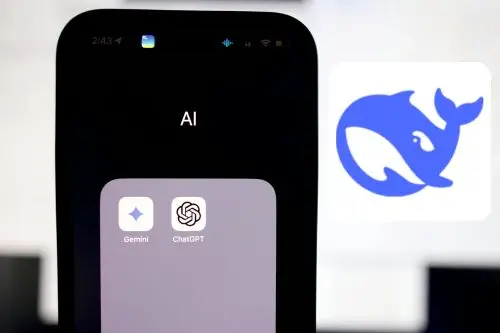DeepSeek’s rapid rise against America’s ChatGPT is nothing more than a “TikTok-style” transformation within the realm of artificial intelligence. The core reason lies in the delayed US sanctions on Chinese chips—an action taken too late. Notably, NVIDIA’s Jensen Huang had long been selling what he considered low-tier chips from the H100 GPU to China. DeepSeek’s revelations hint that the most worrisome figure might be this theatrical leader in his yellow jacket, especially if, after Trump’s consolidation of power, Congress decides to hold hearings on exactly what has been sold to China over the past decade.
It is well known that GPU technology originally emerged as an application-specific integrated circuit (ASIC) designed to accelerate graphics and 3D gaming. These engines were built with specialized functions but have evolved over the years into flexible, programmable parallel processors. While their primary purpose remains in creating ultra-realistic gaming visuals, modern GPUs now also drive a wide range of applications—including advanced AI technology.
China’s greatest competitive edge is its vast reservoir of population data. Whether in artificial intelligence innovation, pharmaceuticals, or even biochemical research, the nation benefits from having enormous data pools—sometimes sourced as incongruously as a laboratory adjacent to a wildlife seafood market. This unfathomable data advantage fuels its technological ambitions.
The Chinese Communist Party’s system might be rigid, but its strategies against adversaries are notably flexible. Since Mao Zedong’s relentless confrontation with Chiang Kai-shek’s Nationalist government, the tactics have been ruthless and adept at exploiting shortcuts. With the success of platforms like TikTok, American consumers now opt for the most convenient tools—raising doubts among some that, due to China’s controlled information environment and lack of free speech, DeepSeek might not deliver accurate results on politically sensitive topics like “June 4th” or “Winnie the Pooh.” According to this view, such limitations would prevent DeepSeek from outpacing ChatGPT in the long run.
There is a prevailing logic that as long as users avoid searching for political content on DeepSeek, every other query will yield acceptable results. However, much like the fable of the tortoise and the hare—where even when the slow tortoise catches up, the overconfident hare believes victory is assured—this mindset reflects a childish arrogance. Consider Hong Kong: when the local national security law was implemented, officials claimed that as long as citizens did not subvert China or collude with foreign forces, only a few would be targeted, leaving the majority unaffected. Yet, a glance at Hong Kong’s media and the dining halls reveals a stifled public debate over political affairs.
DeepSeek is poised to gradually and methodically reshape human understanding of knowledge and common sense by infusing China’s core values into the vast universe of AI technology. This process is designed to alter Western perceptions of China and, over time, to influence how the West views its own modern civilization—a transformation that could even affect the next generation’s mindset.
Imagine an American history scholar seeking insights into 400-year-old Okinawan or Taiwanese history, or researching the contributions during the Sino-Japanese conflicts and the role of Chiang Kai-shek’s Nationalist government. What “knowledge answer” will DeepSeek deliver? Much like the overnight surge where the English version of Baidu Encyclopedia briefly surpassed Wikipedia, or how the US box office for “The Battle at Lake Changjin” outdid that of “Top Gun: Maverick” and even scored higher on review platforms like Rottenpotato, perceptions are shifting.
Today, debates continue over DeepSeek’s technical merits, with discussions ranging from the rise of the so-called “Little Elon Musk” Liang Wenfeng—who allegedly built his empire from scratch with a $6 million investment to topple American AI giants—to assertions that DeepSeek’s open-source model has outperformed the proprietary approach of ChatGPT, thus missing the true focus of the matter.
American weaknesses, the naïveté of the nation, and the blind trust of its consumers have long been studied by China. Although the Chinese Communist Party might not fully grasp the intricacies of the US political and social structure, it has a profound understanding of human frailties—such as the hyperactivity, impatience, short-sightedness, and gullibility prevalent among American citizens, including the “intellectual elite” and the middle class.
The various follies of Americans and Westerners—what some might call “positive energy” or simply kindness and naïveté—ensure that, despite America’s leading creativity in technological innovation, its commitment to human rights, tolerance, and freedom (and its fear of being branded racist) creates an enduring opening. This opening allows China to reach into America’s wallets, knowledge bases, and the secure vaults of high-end technology.
Today, as Trump has finally caught on—albeit in a state of fury—the inherent openness and candor of the American system contrast starkly with China’s mastery of cunning strategy, as passed down through Sun Tzu’s teachings. Combined with money, allure, iconic landmarks like the Great Wall and the Forbidden City, high-speed rail, and the towering skylines along Shanghai’s Huangpu River, China is ready to capture the spirit of America in the sensory world of platforms like TikTok.
Do you plan to stifle my economy or encircle me internationally? I will ensure that your foundations rot from within.

